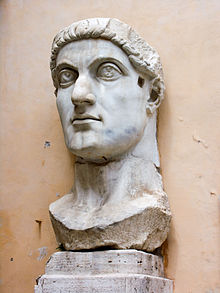The other day an Indiana pastor named Ron Johnson told Politico, “When you find leaders promoting policies that in go in direct opposition to God’s law, that’s where it’s the job of the Church to speak out.”
Fine. I have no principled objection to preachers of any persuasion opposing or endorsing candidates for public office. This is America, and under the First Amendment’s guarantee of freedom of speech, religious leaders should be able to say who they’re voting for and encourage others to do likewise.
The question is whether, when a preacher electioneers from the pulpit, that House of God has a right to keep its tax exemption.
Tax exemptions for religion go back to the Roman emperor Constantine, a Christian convert who around the year 320 handed down a law saying that clergy and their families didn’t have to pay taxes in order to enhance church attendance and because the money they made would be used to help the poor — pauperibus profuturos. (Note to Vatican Synod on the Family: Fourth-century Christian clergy were assumed to be married and have children.)
Ever since, Western civilization has followed Constantine’s lead.
So where does the limit on politics come from? A 1954 law known as the Johnson Amendment (after its sponsor, then Sen. Lyndon Johnson of Texas), which prohibits all non-profits from involving themselves directly or indirectly in political campaigns. To date, the Supreme Court has not found this to be a violation of the free exercise right of those non-profits that happen to be religious.
One of these days, of course, the Court could do so. That’s what the folks supporting Pulpit Freedom Sunday would like. Theirs is a litigation strategy intended to goad the IRS into lifting the tax exemption of a politicking pulpiteer’s church and creating a legal case. Thus far, the IRS has declined to take the bait, allowing preachers to electioneer pretty much at will.
For my part, I’m thinking about Constantine’s precedent. He gave Christian clergy tax exemptions because he wanted the churches to be filled and the poor to be taken care of. The liberty to politick had nothing to do with it.






